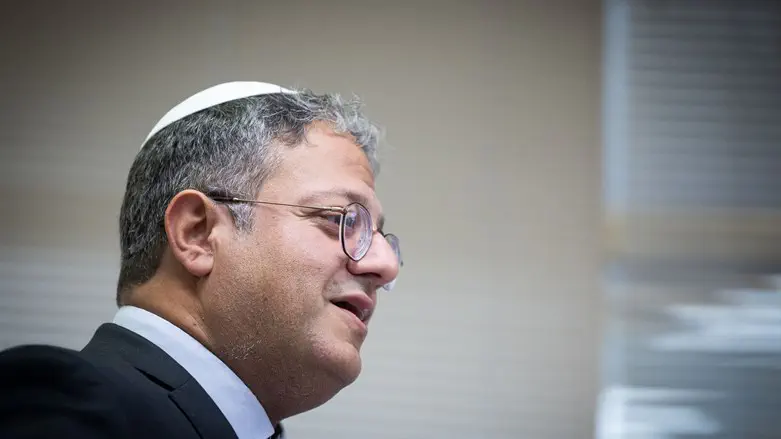
Over the past few months, Israel has suffered a rise in terrorist attacks, which have resulted in both civilian and military casualties. The attacks were perpetrated mainly by Palestinian Arab terrorists abusing Israeli work permits to kill innocents.
Last week, a 16-year-old yeshiva student was murdered while waiting for a bus in Jerusalem. The week before, three Israeli civilians were stabbed and rammed to death in the city of Ariel. The events highlight the need for a stable government in Israel, which will meet the security challenges head-on and reinstate the power of deterrence.
On Oct. 30, Israeli President Isaac Herzog tasked Likud Party leader Benjamin “Bibi” Netanyahu with forming a government. While many columnists analyzed the Israeli election, most remarkably overlooked the domestic issues at their core.
The election process was first and foremost a demonstration of Israel’s vibrant democracy. The will of the people in the previous election was that Netanyahu should not have a majority, and in the most recent election resolved to return that majority to him; The will of the people is decisive. Very few states in the Middle East have such a political system, whereby a premier can be toppled and then reinstated according to the popular vote.
The chanting at the political party conventions was “meshilut,” meaning “governance.” It was a clear reference to the issues of domestic security and judicial reform—which will most probably be the highest priority items on the incoming government’s agenda.
In addition to the terrorist attacks, in the Negev, farmers find themselves under constant attack from Bedouin Arab neighbors. They spend the night in their tractors to protect their equipment and produce, their livelihood. The Religious Zionist Party identified this issue as one of grave concern, and addressed it forcefully. This political stand was one of the foremost reasons for the rise of that party, under the leadership of Bezalel Smotrich and Itamar Ben Gvir.
Judicial reform was also an important element. Many feel that Israel’s criminal justice system has been weaponized for political reasons. There is a growing lack of confidence in the impartiality of the prosecution. There is a call for additional accountability in the Israeli criminal justice system and increased clarity in indictment clauses. Regardless of where one sits politically, all are legitimate issues for public discourse and debate. Most of the reforms called for are already part of other democratic systems, including that of the United States.
Even before a governing coalition has been set up, and before policy has been established, numerous articles have been authored, maliciously defaming and delegitimizing the elected government, some even calling it an appalling “coalition of racists.” In Israel, what is viewed as appalling is this rush to prematurely condemn a legitimate, democratically elected government. Most of the discrediting articles ignore Palestinian Arab terrorism and overlook the achievements of previous Netanyahu governments.
While many columnists have been raising alarms regarding a shift in Israeli politics to the far right, a deeper look at the situation in Israel does not support that conclusion. Already in the previous government there was a sturdy bloc of conservative MKs, more than 70 strong. Naftali Bennett, the former premier, ran on a conservative platform, stating that he was “more right than Bibi.”
Many of the accusations focus on one particular elected official, namely Otzma Yehudit Party leader Itamar Ben-Gvir. He has a problematic past. He once belonged to the outlawed Kahane Party, was indicted for radical right-wing activity and has in the past made radical statements. Yet, in the years since he has expressed regret for his past actions, and stated publicly that he no longer adheres to his old platforms. It was for these reasons that his candidacy was approved by the Supreme Court of Israel.
Those who criticize Ben-Gvir also seem to forget that under the previous government, led by Yair Lapid and Bennett, the Islamist Ra’am Party was part of the coalition. This party has been accused by many in Israel of having a history of affiliation with the extremist Muslim Brotherhood. The concerned voices of today raised no concerns then. They relied on the fact that despite the party’s problematic history, the Supreme Court had approved its participation in the election. The same should hold true for Ben-Gvir.
If one relied on the system when it acted against extremism and even arrested Ben-Gvir in the past, one must rely on the system when it approves him. It is no offense to be right-wing. It is an offense to defame Israel and the elected prime minister of Israel with reckless accusations.
We need to bolster true democratic tolerance in the political discourse. Respecting the vote of the people, even if it empowers the party that one does not support, is part of that tolerance.
We do hope that the relative stability of the incoming government will deliver the security the people of Israel deserve, enhance Israel’s role as a global leader in innovation and facilitate an enhancing of normalization of relations in the Middle East.
Hillel Newman is the Consul General of The Consulate General of Israel in Los Angeles.
This article was first published by the Jewish Journal.